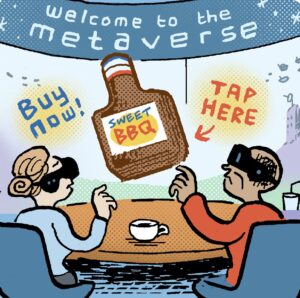The six-year-old storage company MakeSpace had plans to go beyond digital marketing and run its first linear TV ads this March.
And then the coronavirus pandemic happened.
So shortly after starting its linear TV ads, MakeSpace put its plans on hold.
“We’re going to completely pause after this week until we can work through the current surge and get a better sense of coming demand,” said MakeSpace VP of brand Matthew O’Dowd.
Storage – an essential business allowed to run during a lockdown – is in hot demand right now. Schools and businesses have closed due to the coronavirus outbreak, and people need a place to hold items during a time of uncertainty.
This high demand means MakeSpace, which offers concierge pickup and delivery in 24 US markets, doesn’t want to run ads where its storage service is already overburdened.
The company also wants to rethink its messaging. Its original creative poking fun at Marie Kondo-type downsizers who throw out beloved items doesn’t feel quite right in the current climate.
“While we love our new campaign and the response has been really positive, there are more pressing concerns at the moment than the crisis of space,” O’Dowd said.
When MakeSpace will reenter the linear TV market remains to be seen.
“We’re very much looking forward to getting it back out there as soon as we get through all of this,” O’Dowd said.
MakeSpace’s linear TV playbook
MakeSpace’s initial reason for getting into linear TV was to aid a concerted expansion effort, following a March 2019 joint venture with the paper records storage service Iron Mountain.
That deal gave MakeSpace access to Iron Mountain’s storage space, trucks and movers, and MakeSpace’s job was to provide a better front-end experience – which is why it wanted the mass reach of linear TV.
Come fall, MakeSpace wanted to make headway toward building a national brand in a self-storage market that lacks a dominant player. “We’re offering the world something better, and we want to be in as many places as we can as we scale the media,” O’Dowd said.
Now with the coronavirus outbreak, MakeSpace will have a different opportunity to define itself as a brand that was there for consumers when they needed it.
“Our current focus is trying to serve the needs of everyone affected by shutdowns and displacements,” O’Dowd said.













